- Details
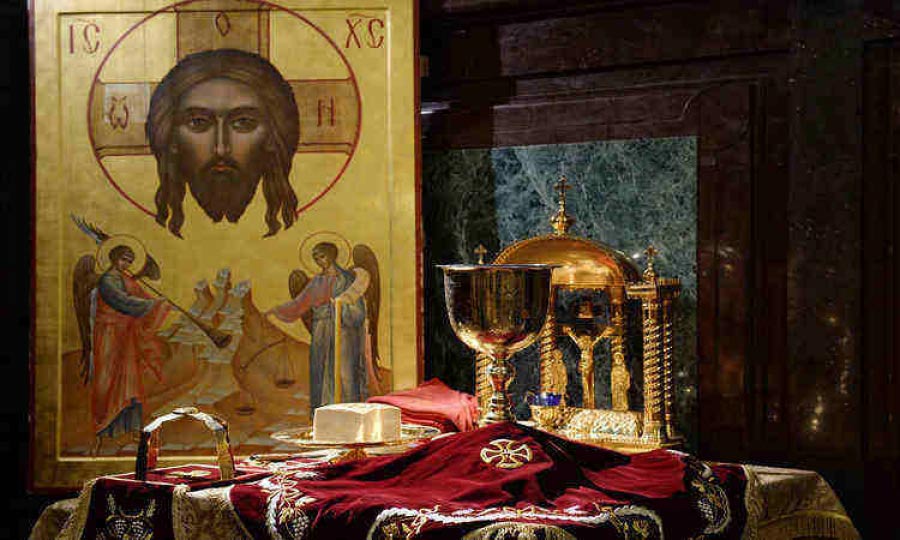
During the Divine Liturgy, continuing the Litany of Peace, the Deacon urges the congregation to pray for the whole nation, for the rulers who rule it, and the military which protects them: ”For this land, its authorities and armed forces and for every city and land, and for the faithful who live in them, let us pray to the Lord”.
We all know how important it is for political leaders to rule justly for the welfare of the people, and not in a selfish or tyrannical way, serving personal or partisan interests. Praying for our national leaders is also a command of the Apostle Paul: "Therefore I exhort first of all that supplications, prayers, intercessions, and giving of thanks be made for… all who are in authority, that we may lead a quiet and peaceable life in all godliness and reverence" (1 Timothy 2: 1-2).
- Details
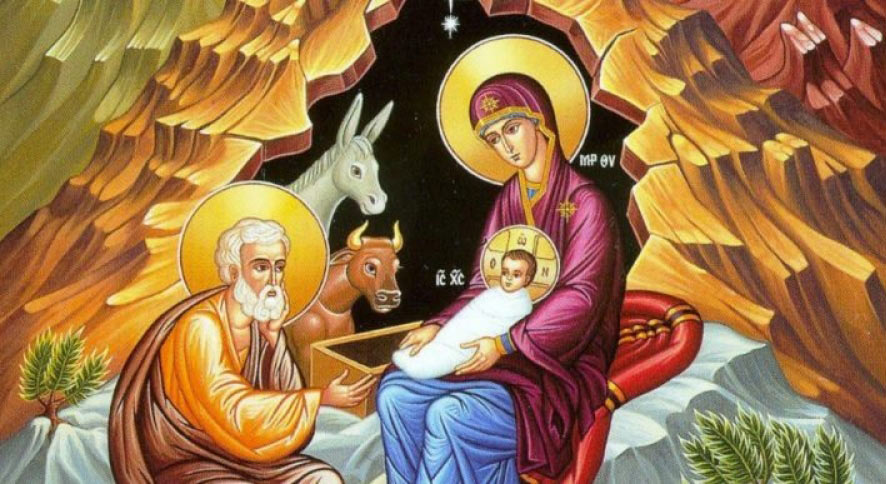
On the Feast of the Nativity (Christmas Day), we join the shepherds of Bethlehem and the wise magi of the East in their rush to the Holy Cave, to worship the King. We are amazed by the extreme humility of Jesus, who was willingly placed in a manger of animals! The poverty of the Cave does not change the fact that our Lord Jesus Christ is the "King of Kings" (among other titles) and the eternal glorious High Priest, as St. Paul reveals to us in his Epistle to the Hebrews: "So also Christ did not glorify Himself to become High Priest, but it was He who said to Him: You are My Son, Today I have begotten You" (5:5); He is "Called by God as high priest" (5:9-10; Psalm 110: 3-4). Our Lord Jesus Christ, together with the royal (see John 18:37) and the Prophetic offices, also exercises the Priestly office. This is why He appears in some icons in hierarchical vestments as the High Priest, who abolishes the priesthood of Aaron's successors and inaugurates a new kind priesthood (Hebrews 8:7 and subsequent verses).
- Details
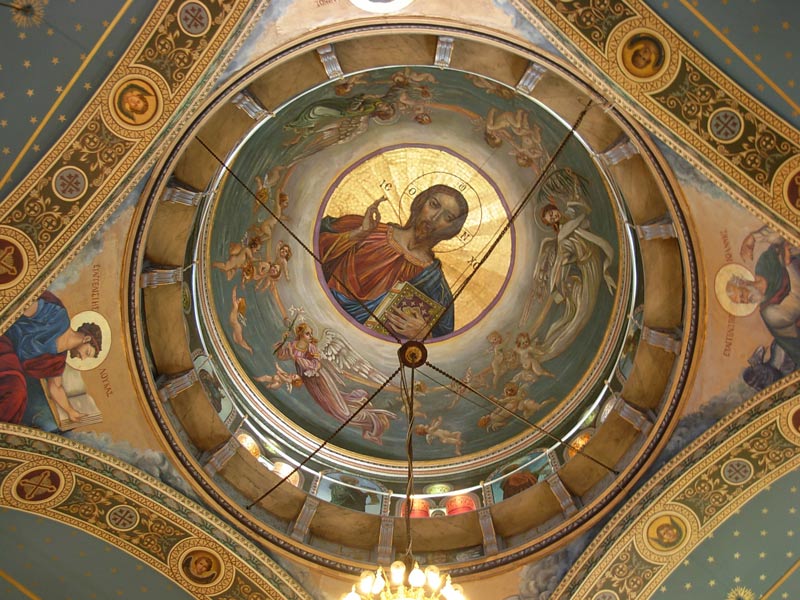
The Deacon, continuing the "Litany of Peace" in the Divine Liturgy, exclaims: "For this holy house and for those who enter it with faith, reverence, and the fear of God, let us pray to the Lord". We learn from the Bible that the Holy Spirit not only dwells in the physical body of every baptized Christian (which is called “the temple of God” and the “house of the Lord”---see 1 Corinthians 3:16 and 6:19), but also the particular house or building that is dedicated to the worship of the Lord. It is the place where believers gather to pray and be sanctified by the Holy Mysteries, worshipping the Most High “in Spirit and in truth” (John 4:24). The Church is also called “the house of prayer” and the “temple of God” (1 Corinthians 11:22).
- Details
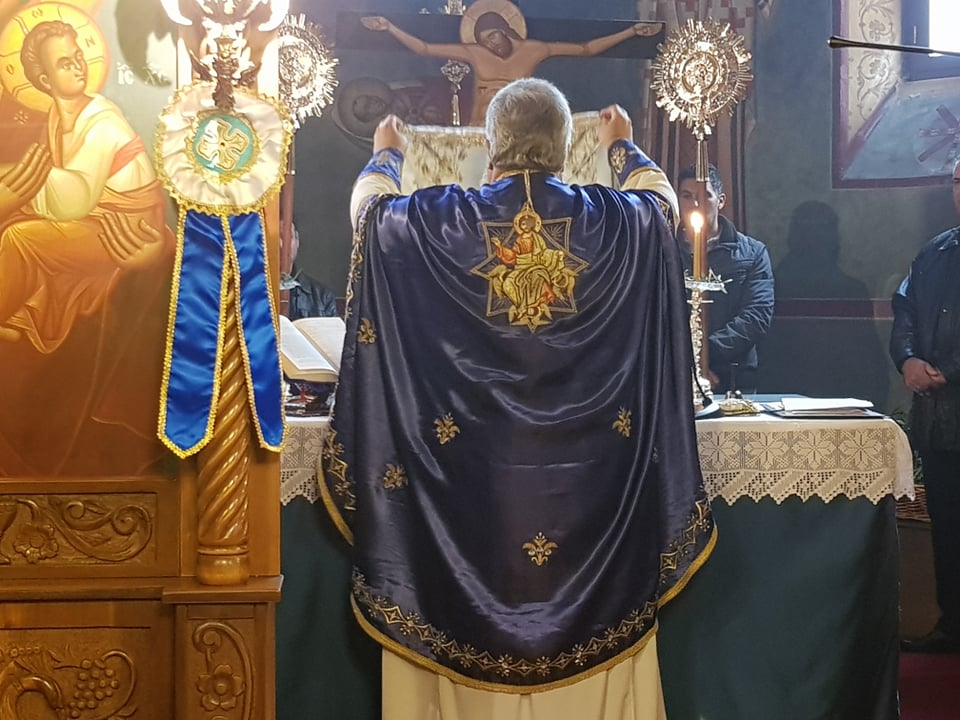
In the ”Litany of Peace” of the Divine Liturgy, there follows in the third prayer a specific reference to peace, which is our main subject for today. In it, the Deacon proclaims: ”For the peace of the whole world, for the stability of the holy churches of God, and for the unity of all, let us pray to the Lord.”
- Details
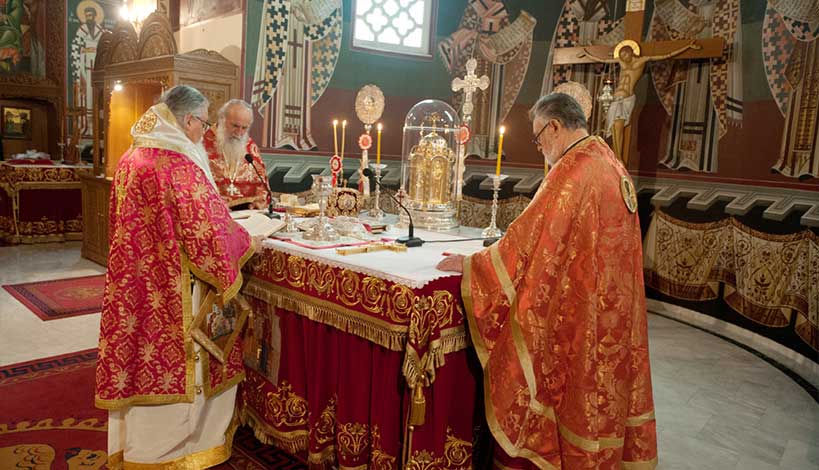
After the doxology: "Blessed is the Kingdom of the Father and of the Son and of the Holy Spirit", with which the Divine Liturgy begins, the Deacon (if there is no Priest) addresses the congregation with a series of short prayers urging them to pray. As St. Paul says, "we do not know what we should pray for as we ought" (Romans 8:26), so the Church teaches us the way of prayer. She teaches us to not use many words, like the Pharisees, who “think that they will be heard” in this way, and whom the Lord condemned (see Matthew 6:7). We are also not to just repeat things mechanically, not paying attention to their meaning. The Deacon guides us into the right way to pray, and he is the one to direct the celebration of the Divine Liturgy “in peace” (with the blessing of the Bishop or Priest).





